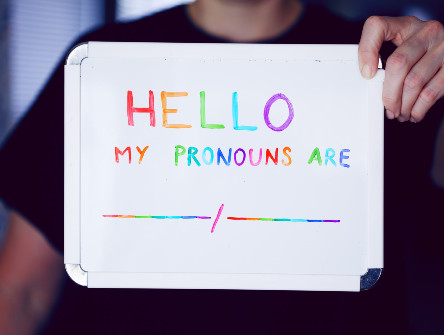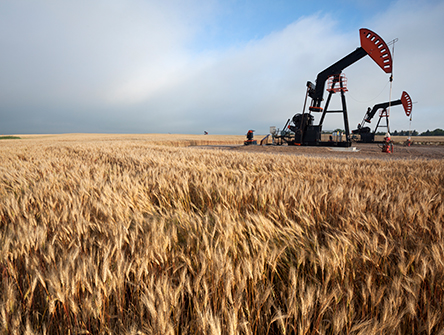No more excuses for our immigration backlog
The government needs to commit to tackling unacceptable delays.

Canada achieved an incredible goal by welcoming more than 401,000 new permanent residents in 2021 (the largest number of immigrants in a single year in Canadian history). According to the Government of Canada, the majority of these new permanent residents were already in Canada on temporary status. Despite this milestone, which we should celebrate, recent reports continue to shed light on Canada’s enormous and growing immigration backlog. As Canada is set to enter its third year of the pandemic and aims to welcome 411,000 new permanent residents in 2022, this severe backlog is undermining the system and impeding family reunification, economic recovery and respect for human rights.
Throughout the pandemic, Immigration, Refugees and Citizenship Canada (IRCC) has stated that the pandemic has limited its ability to process applications “normally.” As of December 2021, there were reports that IRCC had accumulated a backlog of over 1.8 million applications, including for citizenship, permanent residence and temporary residence. This was a dramatic increase from the summer when, reportedly, the backlog of permanent resident applications had exploded by 70% since February 2020. At the time, there were 375,137 applications for permanent residence in the queue and 702,660 applications for temporary residence. As of December 15, 2021, those numbers had risen to 525,570 and 819,874, respectively.
In Prime Minister Trudeau’s December 2021 mandate letter, he acknowledged the problem, and called on the newly appointed Minister of Immigration, Refugees and Citizenship, Sean Fraser, to reduce processing times impacted by COVID-19. The previous Minister, Marco Mendicino, made similar promises to alleviate the backlog. And yet applicants in Canada and across the world continue to face lengthy processing delays and uncertainty, negatively impacting their lives and well-being. While Canada and the world faced unprecedented uncertainty throughout the early stages of the pandemic, essentially grinding Canada’s immigration system to a halt, patience from applicants and representatives for solutions to the growing backlog is wearing thin.
One of the legislative objectives of Canada’s Immigration and Refugee Protect Act (IRPA) is “to see that families are reunited in Canada.” However, the backlog is impeding family reunification efforts. Various reports during the pandemic demonstrate that spouses and other family members face harsh and lengthy separations due to the backlog. Representatives frequently have to manage client’s expectations based on their experience due to unreliable processing times on IRCC’s website. For example, IRCC currently provides an estimated processing time of 12 months for spouses or common-law partners living inside or outside Canada, but couples often wait 24 months or longer to hear about their applications, with many submitted before the onset of the pandemic. These discrepancies ultimately undermine the system’s credibility, particularly at this stage of the pandemic.
Family reunification has also been impeded by a failure to process visitor visa applications in a timely manner. The situation was exacerbated when applicants and representatives were informed last fall they had to resubmit their applications if filed before September 7, 2021, and “if their situation had changed.” Applicants who did not intend to travel to Canada immediately were advised to do nothing, and their applications would remain in the queue. This type of “solution” also undermines Canada’s immigration system through unclear policies which cause confusion.
It is also well documented that Canada’s economic recovery and labour force depends on immigration. However, recent reports indicate that Canada is experiencing a rising labour shortage. Meanwhile, express entry invitations for highly skilled workers have been on pause since December 2020 regarding the Federal Skilled Worker Program and since September 2021 regarding the Canadian Experience Class. A redacted internal IRCC memo recently made public has led to further confusion as it seems to indicate that intake could continue to be paused for at least half of 2022.
The backlog also impacts human rights when people’s ability to plan their lives and be reunited with family is put on hold for unknown periods of time. One of the greatest challenges faced by applicants and their representatives is a lack of transparency and communication in combination with longer than normal processing times. In many instances, applicants and representatives receive little to no responses to requests for updates. They’re left to make access to information (ATIP) requests which are also delayed due to the pandemic. Or they have to reach out to their Members of Parliament after waiting months or years to get answers about their files. Frequently, applicants and representatives struggle to get answers from unknown officers. CBC recently reported that many applicants were assigned an IRCC officer known as “DM10032,” but their files were mostly on hold since March 2020. These applicants have been trying to find answers as their applications were seemingly left in limbo and described their experiences as “agonizing and traumatic.”
The pandemic can no longer serve as an excuse for the new status quo. There is some cause for hope. The Liberal government pledged $85 million to reduce processing times in its December 2021 economic and fiscal update. This week, Minister Fraser also proposed measures to improve client experience and modernize Canada’s immigration system and committed to returning to processing service standards in various programs by the end of the year with greater transparency. Given the immense and growing backlog, we’ll see whether the goal can be met.
Minister Fraser also promised greater reliance on “advanced data analytics” to help accelerate processing while final decisions will be made by an officer. This may sound promising, but advocates and lawyers have expressed concerns regarding the reliability and fairness of these technologies and the disproportionate negative impact they might have on vulnerable applicants who struggle with complex systems, particularly when challenging of decisions that don’t go their way. Minister Fraser also promised a new permanent residence application tracker will be introduced in February 2022. But he did not address the ongoing issues with transparency for other applications other than to say the processing times tool will be updated and clients will be given more information on the status of their application. In addition, the minister calls the new online portal which enables permanent resident applicants in Canada to finalize their landing process electronically a success. Unfortunately, he does not acknowledge the long delays that clients have faced in receiving their cards or how these issues will be resolved. Lastly, this week’s announcement is silent on the government’s plan to return to normal processing of skilled workers who are necessary to Canada’s economy.
To promote economic recovery in Canada and uphold the objectives of Canada’s immigration law, the Government of Canada must find more efficient and timely ways to deal with the backlog and offer greater transparency to applicants and their representatives. Immigration lawyers see in their practices how these delays create confusion and uncertainty that result in extreme levels of stress and anxiety which negatively impact a client’s life, plans and future. Minister Fraser’s recent announcement serve as a glimmer of hope to repair the integrity of Canada’s immigration system. However, it is essential that the government update applicants and their representatives on the status of its backlog reduction plan.
It is in Canada’s best interests for IRCC to tackle the backlog and achieve greater transparency and functioning to reunite families, bring skilled immigrants and workers to fill labour shortages, promote economic recovery, and revive Canada’s immigration system and reputation in accordance with the IRPA’s objectives.


